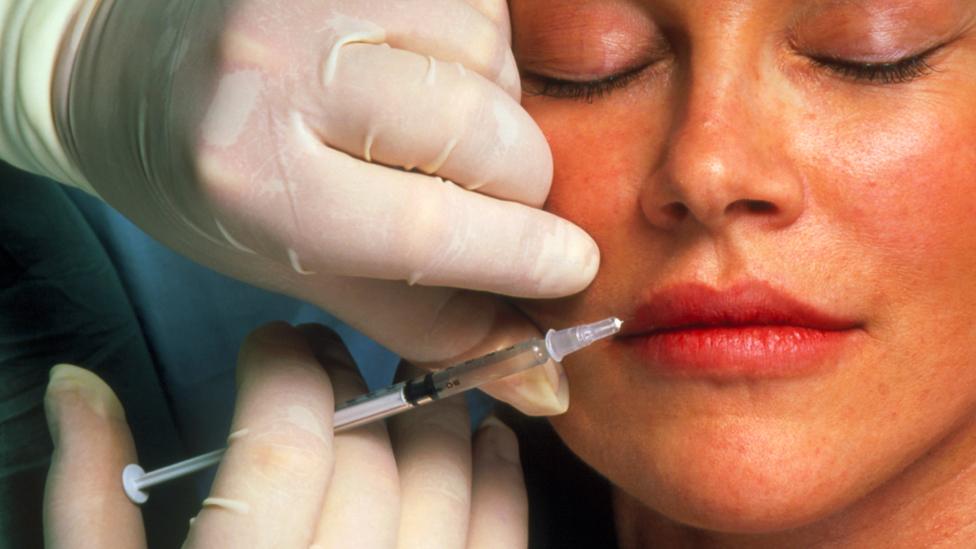Blackfishing: The women accused of pretending to be black
- Published
Aga is one of a number of white women accused of pretending to be black.
"I've had no surgery, so I can't take off these lips. I can't remove my 'fake bum implants'."
Over the past month Aga Brzostowska has been labelled a "blackfish".
It's a term used for someone accused of pretending to be black or mixed-race on social media.
The suggestion Aga has been faking her race is news to her.
The 20-year-old University of Birmingham student told Radio 1 Newsbeat her skin is naturally "not pale". But she does admit to making it darker.
Allow Instagram content?
This article contains content provided by Instagram. We ask for your permission before anything is loaded, as they may be using cookies and other technologies. You may want to read Meta’s Instagram cookie policy, external and privacy policy, external before accepting. To view this content choose ‘accept and continue’.

"With things like tanning, I don't think I've done anything in a malicious way.
"So I don't feel like I need to stop doing something because... why would I stop doing something that's benefitting me or that I enjoy doing?" Aga, who asked to be referred to as Alicja, says.
She says she's not suggesting "white privilege is not a thing" - but wants to tell her critics "the assumptions you're making are wrong".
Alicja is just one of a number of white Instagram influencers who've been accused of changing their features to make themselves look more like black women.
People have pointed in their pictures they have darker skin, fuller lips, bigger thighs and bums, and hairstyles that include curls and braids.
Sweden's Emma Hallberg, who has more than 260,000 Instagram followers, is the most infamous.
She had to defend herself after two photos of her went viral on social media.
Allow X content?
This article contains content provided by X. We ask for your permission before anything is loaded, as they may be using cookies and other technologies. You may want to read X’s cookie policy, external and privacy policy, external before accepting. To view this content choose ‘accept and continue’.

"I do not see myself as anything else than white," Emma told Buzzfeed, external. "I get a deep tan naturally from the sun."
Emma's defence is similar to the two women accused of blackfishing spoken to by Newsbeat.
Alicja admits that two pictures of her which were doing the rounds on Twitter - one from when she was 13 and one taken recently - don't look good for her.
"I understand why the Twitter thread was made. And it makes sense to use my pictures, because without looking at anything or knowing me, it makes sense to put those two pictures together because obviously you can see a mad difference - a crazy difference.
"So I'm not really upset at the fact that someone used the pictures without knowing me. It makes sense of what they were trying to get across."
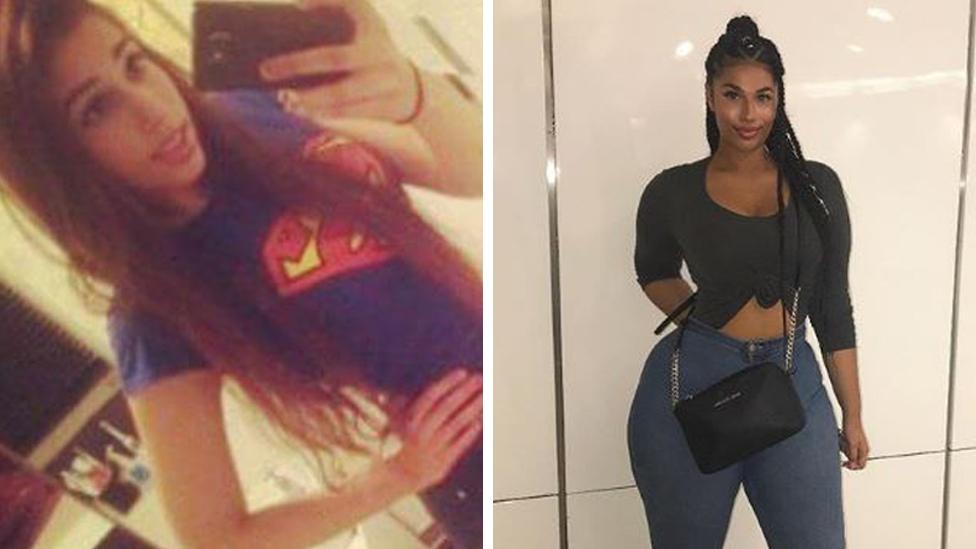
Alicja says the picture on the left is from when she was 13, and the one on the right is recently after being on holiday
Alicja claims the differences in her appearance shown in the two pictures is completely natural - the result of hard work in the gym, and being fresh back from holiday - braids included.
And she thinks part of the reason people are surprised when they find out she's white is down to "stereotypes" about what Polish people look like.
"I'm proud to be Polish but I don't know why I look like this - my features are just there. I can't help that I have big lips and not the stereotypical Polish features," she says.
As for the braids, Alicja says her friend's little sister had started a hair company and wanted to use her head for pictures.
"I didn't really think much of it. I really appreciate the culture and I really just love the look - that was literally it."
Why is this a big deal?
Blackfishing has been talked about a lot ever since writer Wanna Thompson's Twitter thread - which highlighted women accused of blackfishing - went viral last month.
Some people have been questioning why it's an issue.
Dara Thurmond, a nurse from New York who's been vocal about blackfishing, told Radio 1 Newsbeat that black people "just being ourselves" has "always been frowned upon".
She says her frustration comes when white women who appear to be posing as black don't know "the struggle that black women go through just to be accepted as who they are".
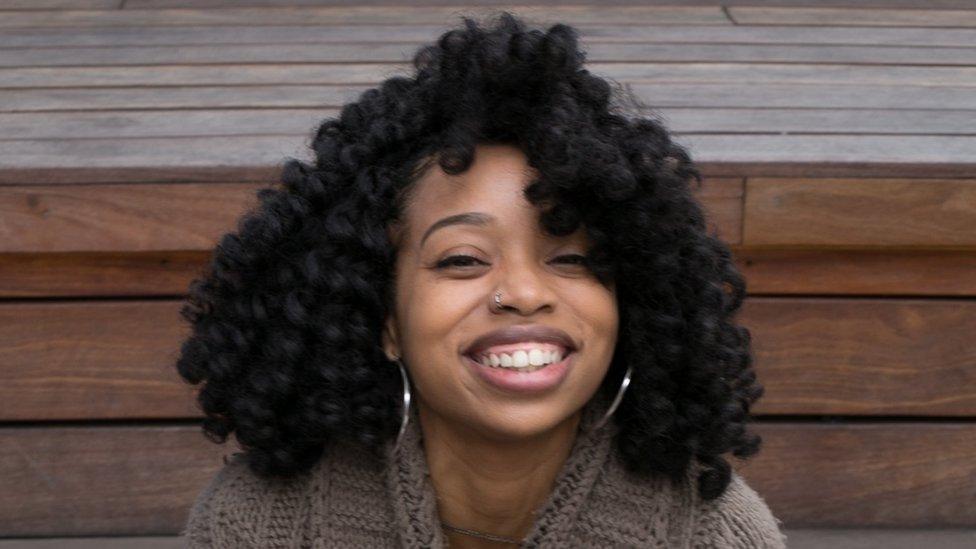
Dara says black influencers are being "pushed to the side" by girls who are blackfishing
"Even now in certain work spaces, black women can't wear their natural hair out. They have to wear weave.
"They have to press their hair so that it's straight, because to wear an afro or to wear braids or to wear locks is seen as unclean or untidy - it's not professional."
She says women accused of blackfishing are being "unfair" to black women who are trying to make it as influencers and get product endorsements of their own.
"You take away from them," Dara says.
Jaiden Gumbayan is 19, from Jacksonville, Florida, and has also been accused of blackfishing.
Like Alicja, she says she understands some of the backlash against her, but denies pretending to be a different race to her own.
Allow Instagram content?
This article contains content provided by Instagram. We ask for your permission before anything is loaded, as they may be using cookies and other technologies. You may want to read Meta’s Instagram cookie policy, external and privacy policy, external before accepting. To view this content choose ‘accept and continue’.

She believes there's a "fine line between appreciation and appropriation".
"It could be looked at as the biggest form of flattery to some black women or people of colour, and to others it's mimicking and taking their culture without knowing the history behind it," she says.
"I know that there are other influencers on Instagram, and other celebrities... that is their intention."
A name that's been mentioned in almost everything written online about blackfishing is Kardashian.
It's because Kim, in particular, has been accused of appropriating black culture on several occasions down the years.
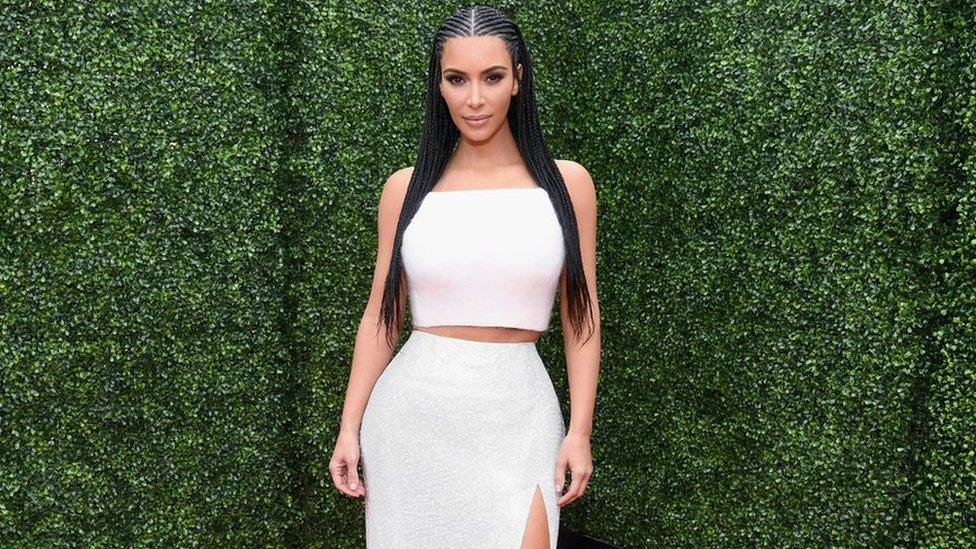
Kim Kardashian has defended wearing braids in the past
The "Kardashian effect, external" has also been blamed for an apparent rise in young people seeking cosmetic surgeries.
Dara says she wasn't entirely surprised when she heard about the phenomenon of blackfishing.
"We're coming into a time where you see a lot of black women really expressing themselves and stepping into their blackness, and owning it, and not being ashamed of it anymore.
"So it makes sense why it's happening - because I guess some people who are white-presenting feel like they're not the standard anymore. So now they're trying to do things to stay relevant and keep their popularity."
"It's perfectly fine to appreciate the mixed variety of people that you grew up around," she adds.
"But if it gets to a point where you are now trying to pass as someone of mixed race and you're not... that's when it becomes an issue."
Jaiden says that the backlash against her has taught her that there are "other ways of showing appreciation".
Allow Instagram content?
This article contains content provided by Instagram. We ask for your permission before anything is loaded, as they may be using cookies and other technologies. You may want to read Meta’s Instagram cookie policy, external and privacy policy, external before accepting. To view this content choose ‘accept and continue’.

"We can appreciate their culture without having to do or wear their hairstyles, or trying to act or be a certain way that we're not."
Alicja says she's had people telling her to kill herself after posting pictures online.
She says the claims that she's been blackfishing mean she'll be more "cautious" with looks like braids in future.
"I'm obviously learning about what they're trying to say and taking it on board, honestly I am.
"But there's only so much I can do when I don't feel like I've harmed or done anything in a malicious way."
Will she change her pictures?
"I don't know what I can change, because it's just me."
Follow Newsbeat on Instagram, external, Facebook, external and Twitter, external.
Listen to Newsbeat live at 12:45 and 17:45 every weekday on BBC Radio 1 and 1Xtra - if you miss us you can listen back here.
- Published22 November 2018
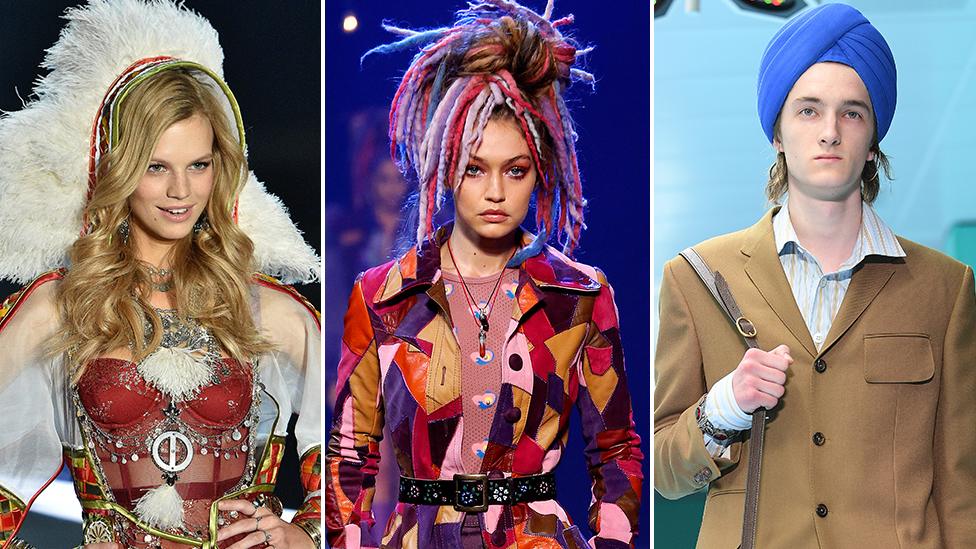
- Published22 June 2018
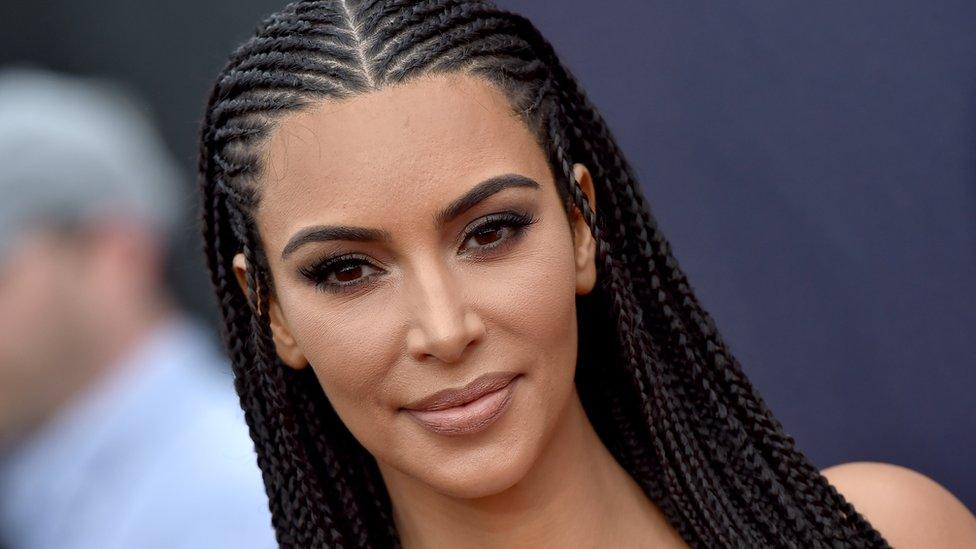
- Published1 May 2018
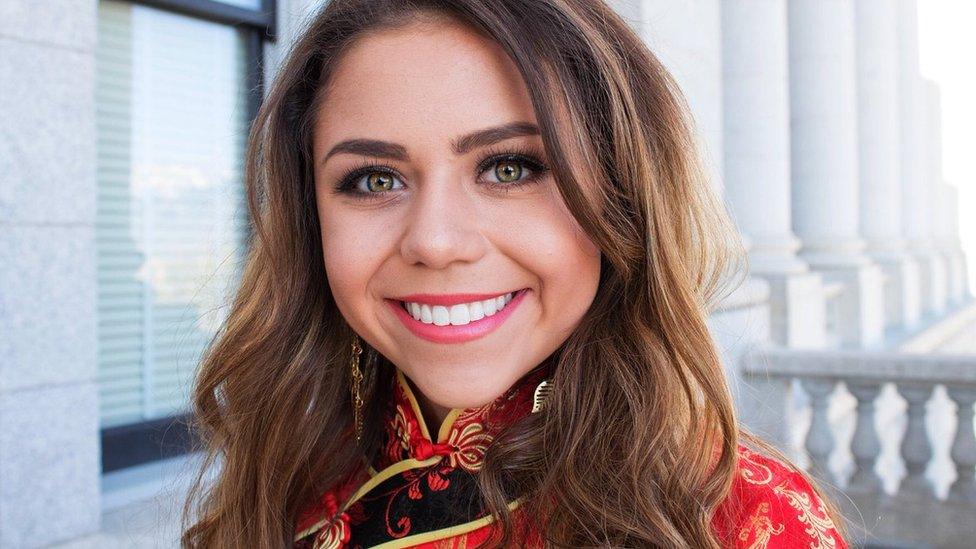
- Published21 August 2018
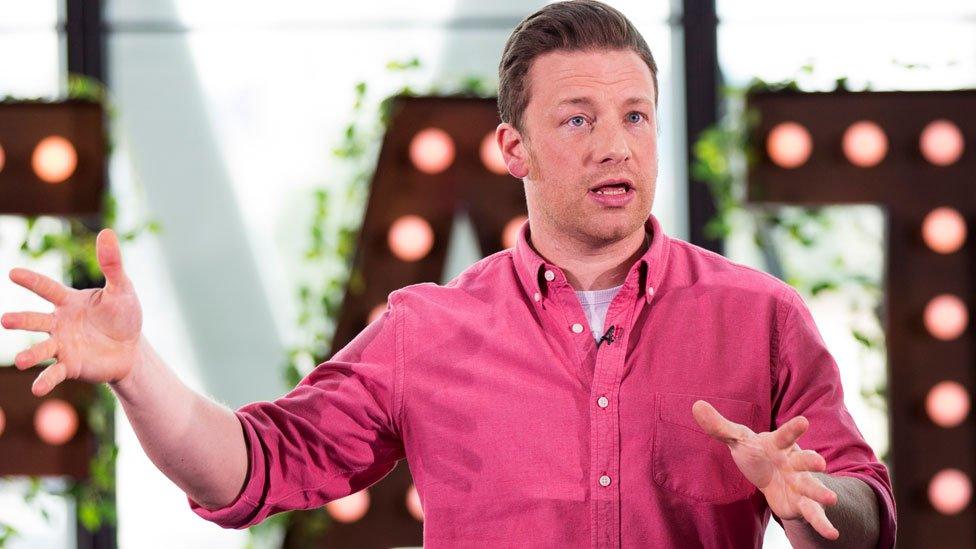
- Published22 June 2017
